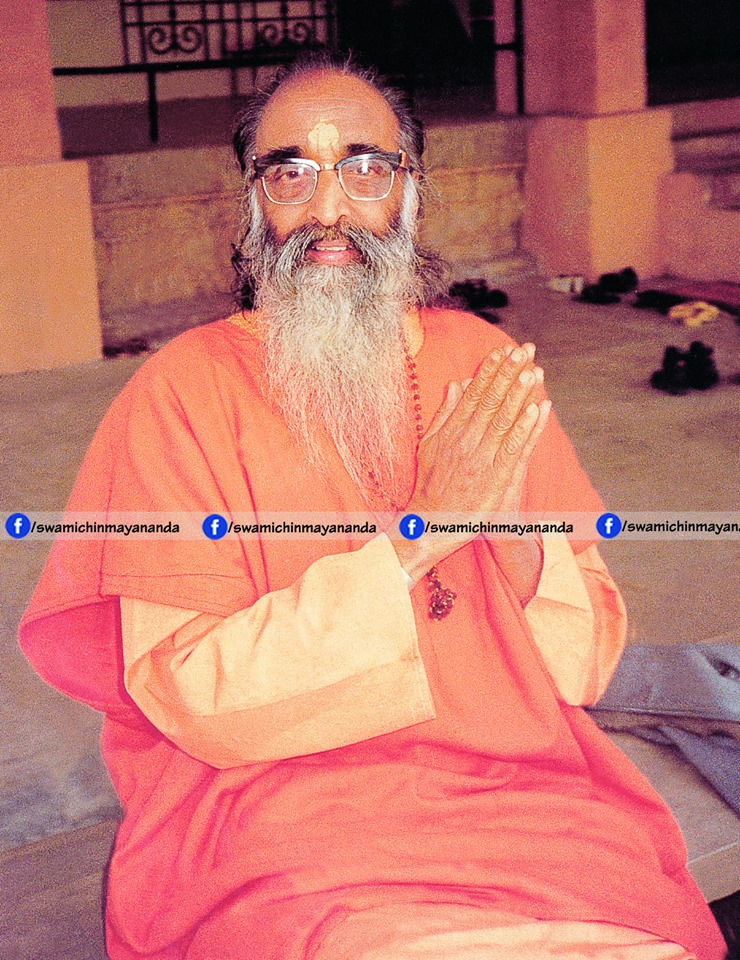"GLORY OF SANATANA DHARMAM" ( HINDUISM ) : SWAMI CHINMAYANANDA : CHINMAYA MISSION
Opinion
23/01/2019
1665.
Ref : My Love for Chinmaya Mission : KUMUDHA VENKATESAN, USA
My family’s association with this Hindu organization and its teachers lifted me from tragedy while inspiring religious education and daily devotion
I CRIED LIKE A CHILD FOR MONTHS AFTER the passing of my father in 2013. Suddenly everything came to a standstill for me. My whole life, I had loved, respected and revered him. As I grew up, he taught me math and drawing. We would discuss everything from politics to philosophy, religion and astronomy. He was my role model. I vividly remember his fascination with the perfect creation and management of our universe by Lord Krishna. Always brimming with optimism, he was loving, caring, inspiring and compassionate to everyone. He always performed his duties to the best of his abilities and in full surrender to the Divine.
After traveling to India for the funeral rites with my husband, mother-in-law and son, I returned to the US with a heavy heart. The difficult karma kept coming, and I fractured my right hand on the journey home. For the following few weeks I was overwhelmed with intense pain, sadness and grief. I found myself hating life every morning. My caring mother-in-law and husband cooked food for the family every day for the next two months, while I would sit in my room for hours, staring at a beautiful picture of Lord Krishna, asking, “Why did my father die? Why am I feeling so sad?” Sometimes tears rolled down my face. Engulfed with sadness and anger, I could only nod my head when friends offered condolences. My mother, siblings and cousins in India also tried to console me, to no avail. Soon I no longer felt like praying; I lost interest in my favorite activities, such as listening to music or going for long walks. I was on the verge of becoming an atheist. My husband—my best friend and soulmate—tried to comfort me. He urged me to pray, to recite the Vishnusahasranama and Aditya Hrudayam every day.
Then one day my mother-in-law told us about Chinmaya Mission’s Balavihar—classes on Hinduism for youth, offered on Sundays. She felt my son would get a good exposure to Hinduism there. I didn’t really like the idea, as Sunday was a day of rest and relaxation for our family, but I conceded. Before I knew it, my son began to consider it the best day of his week! He started by learning stories from the Ramayana along with the chanting of several shlokas. That year a local Bhagavad Gita and Upanishad discourse was to be given by Swami Tejomayananda himself, disciple of Swami Chinmayananda and head of the Chinmaya Mission until 2017. The title was Essence of the Bhagavad Gita. Though I resisted, my husband finally coaxed me into attending.
Listening to the enlightening words of Swamiji, I was instantly transported to another world. When Swamiji said, “The human soul is eternal and immortal. Fire and weapons cannot destroy it,” I felt as if I was hearing Lord Krishna Himself. These few words had a profound impact on me and on my depressed state of mind. Listening further, my mind became calm and refreshed. I wanted this divine talk to go on eternally. A state of peace and tranquility persisted long afterwards, uplifting and reenergizing me, rekindling my interest in our ancient scriptures and philosophy. As Swami Vivekananda said, “Super-divine strength is the only way, the one way out. By it alone we can pass through all these intricacies, through these showers of miseries, unscathed.” Here I felt as though that Super-divine had intervened during my life’s darkest period.
Soon I was reading a Gita translation by Pujya Gurudev (Swami Chinmayananda). I wholeheartedly agreed with its wisdom. As with my father, I was learning of karma, dharma (righteousness), virtue, meditation, mantras, and the three gunas: sattva, rajas and tamas. I started to read spiritual books, many by Swami Chinmayananda, absorbing his words, his legacy and his meditative simplicity. By divine grace, I started to follow a more spiritual way of life. I now began my day with a simple puja and at least a ten-minute meditation. I worked to follow Lord Krishna’s sage advice: “Do your duty to the best of your abilities.” As Swami Chinmayananda said, “Start living the divine life. Then yours shall be the daily experience of the blessings of the Lord, even in your simple domestic life.”
Recently my husband and I took part in Swami Iswarananda’s enriching workshop, Life of I: On the Sadhana Trail. Swami expounded Vedanta teachings with numerous interesting stories from everyday life. I was in a state of spiritual bliss when Swami articulately explained how prayer, japa and meditation can take our mind towards purity and goodness.
***
JAI HIND
JAI BHARATHAM
VANDE MATARAM
BHARAT MATA KI JAI








Comments
Post a Comment